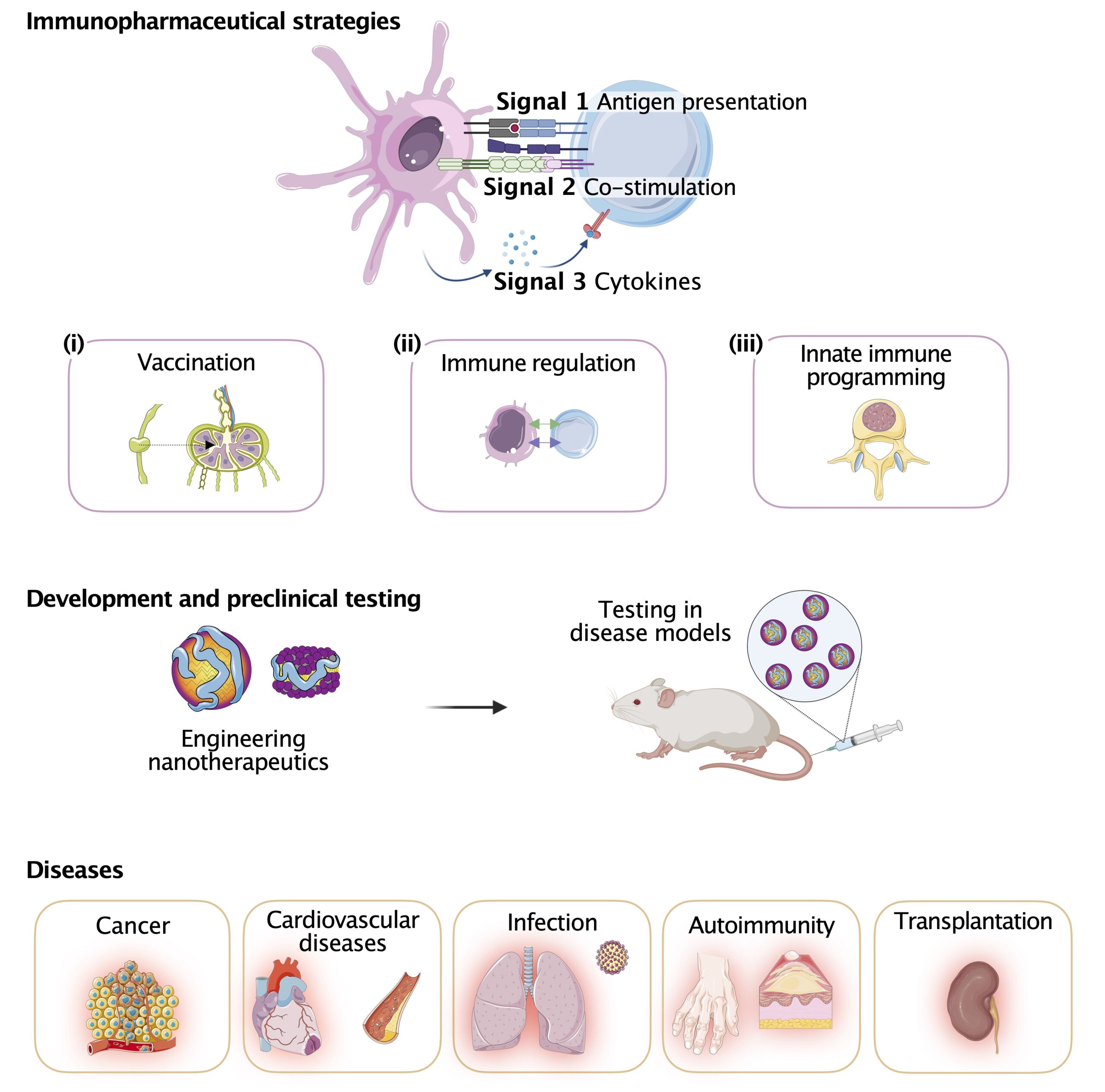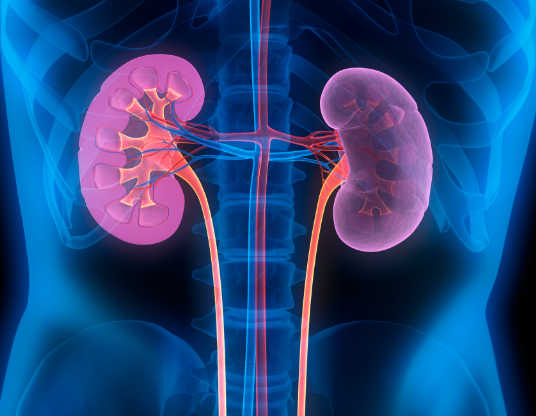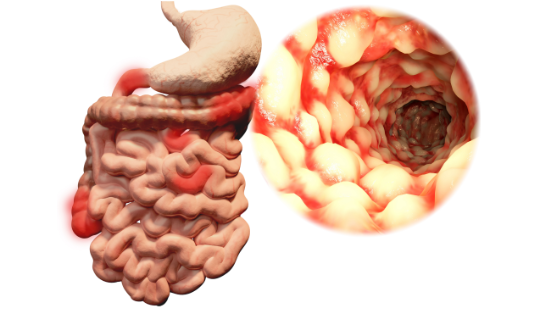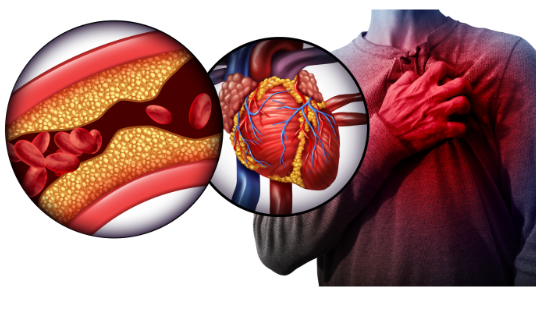



A well-functioning immune system protects against pathogens and is required for tissue repair. As our understanding of the immune system and its role in human health and disease grows, it is becoming increasingly evident that many immune system-directed treatment opportunities for major diseases are being left on the table. To unlock immunotherapy’s full potential, BIOTRIP will focus on sophisticated immunopharmaceutical strategies for (i) vaccination, (ii) immune regulation and (iii) innate immune programming. BIOTRIP’s overarching goal is to restore ‘immune health’ in important immune-mediated diseases, including cancer, infection (e.g. COVID-19), cardiovascular disease, sepsis, and organ transplantation.

Despite its success, patients typically require life-long immunosuppressive therapy, an approach that fails in ~15% of cases. Moreover, immunosuppressive therapy impairs the immune system, dramatically enhancing the risk of cancer, infection, and metabolic toxicity. Current immunosuppressive therapy treats the symptoms of an already activated immune system.
Preventing the immune system from getting activated and acquiring so-called alloimmunity will dramatically improve the quality of life of and organ durability in transplant patients.


Boosting immunity in the elderly and vulnerable individuals
The (innate) immune responses to infection are better in children and young adults than in the elderly and individuals with underlying conditions. These people are vulnerable, have decreased immune function and a higher risk of developing severe disease upon infection with a newly emerging pathogen. This was again made clear during the ongoing Covid-19 pandemic.
A compelling mitigation strategy is to broadly boost their immune response with a ‘universal vaccine’.

Improving inflammatory bowel disease patients’ quality of life
Inflammatory bowel disease (IBD) is a term for two conditions: Crohn’s disease and ulcerative colitis. In IBD, the immune system responds incorrectly to environmental triggers, which causes inflammation of the gastrointestinal tract. Prolonged inflammation results in damage to the GI tract.
Immunotherapies that precisely regulate inflammation will greatly enhance IBD patients’ quality of life.


Regaining control over dysregulated immune responses after infection
Upon infection with SARS-CoV-2 or other pathogens such as Influenza A virus, our immune system gets activated to eliminate the threat. Sepsis is a life-threatening condition that arises when the body’s response to such infection ‘spins out of control’ and causes injury to its own tissues and organs.
Therapeutically regaining control over immune responses in sepsis will save lives and dramatically reduce the burden on healthcare systems.

Focus on inflammation and innate immune memory
The underlying cause of most cardiovascular diseases is atherosclerosis, the buildup of fat and inflammatory cells in arteries. Lipid lowering has benefits, but the immune cells that remember inflammation could offer treatment targets for atherosclerosis.
The application of innovative, targeted anti-inflammatory therapeutics after a heart attack, stroke or severe infection will lower the risk of future cardiac events.


Empowering the immune system to eradicate cancer
Cancer has long been viewed a disease caused by uncontrolled proliferation of cells, ascribed, since 1902, to mutations. For a long time, surgery, radiation and chemotherapy were the only treatments. These cancer treatments worked by killing tumor cells and cause a lot of ‘collateral damage’ to healthy cells and tissues. The approval of the first checkpoint immunotherapy in 2011 revolutionized cancer treatment.
Innovative nanotechnology harnesses the potential to make immunotherapy work in increasing numbers of cancer patients.